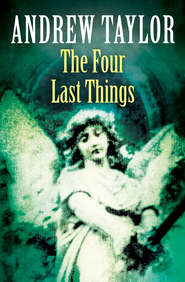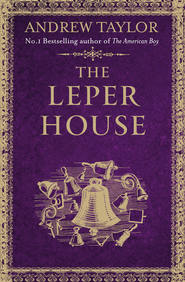По всем вопросам обращайтесь на: info@litportal.ru
(©) 2003-2024.
✖
The Silent Boy
Автор
Год написания книги
2018
Настройки чтения
Размер шрифта
Высота строк
Поля
The pen moves again. The tip of the feather brushes Charles’s chin.
Monsieur Fournier comes to stand at his shoulder. ‘Let me see what you have written.’
Charles hands him the sheet of paper, the ink still glistening. He has answered each question with lines that go up and down, across and diagonally. They are black marks on white paper. They reveal nothing other than themselves.
The following morning, Charles wakes with the light.
Before he opens his eyes, he is aware of rustles and small movements which he thinks must be rats and mice, which come and go at will and treat the place as their own. He opens his eyes.
Without warning, his stomach gives a painful twitch as if someone has punched him there. He gasps and sits up in bed.
A boy is standing beside the window, his outline clearly visible in the light filtering through the cracks of the shutters. He is smaller than Charles and he is very still. He has his back to the room. He stands upright, his shoulders squared like a soldier on parade.
Just for an instant – for a hundredth of a second – Charles feels joy. He is not alone.
His feelings are no sooner there than they are gone. His lips move. They form the words: Who are you? But the words have no sound so the boy cannot hear them.
Charles is afraid as much as excited now. He swings his legs out of bed.
The boy does not move.
The boards are cold. Draughts swirl around Charles’s ankles and rise up his legs under his nightshirt. He shivers, partly from fear.
He takes a step nearer the window, nearer the boy. Then another, and another. Between each step he pauses. It is like the game he used to play with his mother when he was very, very young.
The strange boy does not even twitch. Step by step, Charles draws nearer to him. Still the boy does not move. He has been turned to stone, Charles thinks, he is a statue. He feels pity, though he knows the boy cannot really be like this; but, if he were, surely that would be even worse than losing your voice?
Charles takes a deep breath, stretches out a hand and touches the boy’s shoulder. It is cold, a little damp and hard – hard like wood, not stone. Charles walks around him and opens one of the shutters. The light from the window falls on the boy’s face.
Or rather – the light falls on the place where the face should have been.
The boy’s eye sockets are empty. There is nothing but a hole where the nose should be. The cheeks are sunken. The lips are almost gone. He still has some of his teeth. He is grinning. He will always grin because he can do nothing else.
Charles draws in a long, shuddering breath. His face contorted, he breathes out: a silent scream.
The door creaks. A current of cold air sweeps into the room.
Dr Gohlis is on the threshold.
‘I see you have found my little friend,’ he says in his strange, thick voice. ‘His name is Louis.’
As he speaks, he comes closer. Charles cannot move.
‘Who knows who this boy was?’ the doctor says. ‘Were you aware that before the Revolution, the poor were so desperate that they sent their children to prison – they sold them on the streets – they disposed of them like unwanted kittens?’
Charles stares at Dr Gohlis over the boy’s shoulder. He wishes with all his heart that the boy was still alive, that he was not alone with the doctor.
‘But even dead boys may be worth a few sous. In life they were quite useless to society. But in death, the lucky ones are granted the chance to serve a higher good.’
Dr Gohlis is standing by Louis’s shoulder now. He throws back the second shutter. More light floods over the boy. Charles covers his mouth with his hands when he sees what has been done.
‘So their parents take the money and drink themselves senseless in the nearest wine shop,’ the doctor continues. ‘And a man of science takes the boy.’ He stretches out a surprisingly long arm and grips the right wrist of the figure. ‘The dead boy. The man of science conveys the boy to another man, a man skilled in the art of flaying skin from a body. Believe me, it is not easy to do it properly, to do it well. It is one thing to remove the skin. It is quite another thing to do it without harming what lies beneath.’
The doctor releases the wrist. His fingertips play on the arm of the boy, patting it gently, rising from the wrist up to the elbow up to the shoulder and then to the neck. He points at a place on the neck.
‘See? This is the line of the great artery which carries blood to the heart. This is bone, here, and here the humerus, and here we have the scapula.’ The hand flutters higher. ‘Note the cheekbone. Do you see how some of the skin is still attached? The man who did this was truly an artist.’
The doctor’s hand sweeps down and grips Charles’s neck. Charles tries to pull away but Dr Gohlis tightens his hold. His hand is as cold as a dead thing, colder than the flayed boy.
‘After this boy was flayed, shall I tell you what happened then? He was covered in plaster, every inch of him. When the plaster was dry, they cut it open – and there is a mould of the dead boy. When you have a mould, you can make many copies. The copies are painted, in this case by another artist who is trained in the work of portraying what lies beneath, the inner mysteries under the skin. See how the muscle and tendon and bone stand out in their proper colours. Is it not a marvel?’
His grip is painfully tight. He forces Charles to move around the boy and to come closer. Now he is looking at the boy’s back.
‘These poor simulacra of humanity are called écorchés,’ Dr Gohlis says, ‘the flayed ones. Isn’t that droll? They assist in the instruction of students of medicine and drawing who are obliged to learn about the inward architecture of the human body. Observe.’
He picks up Charles’s right hand with his own left hand. Charles wills himself not to resist, not to pull away. The doctor forces him to extend his index finger. He runs the finger down the spine of the écorché.
‘Here are the cervical vertebrae,’ the doctor announces. ‘And below, in the middle of the spine, here are the thoracic ones. See the natural curve of the spine. Is it not elegant? And further below still, here are the lumbar vertebrae. They are much larger than the cervical ones, are they not? That is because they need to be, for they carry a greater burden.’
The doctor lowers his head to the same level as Charles’s.
‘You see?’ he says. ‘You will never forget this lesson, will you? Not while you live and breathe. You will always remember what lies beneath.’
He stares into Charles’s face. Charles stares back and thinks of nothing but the blank grey sky beyond the window.
‘Above all, you should draw this conclusion from it. You should remember that a boy who is useless in life may at least be useful in death.’ Dr Gohlis releases Charles’s neck and pushes him against the écorché boy. ‘You are no use at all to us if you will not talk.’
As he is speaking, Dr Gohlis moves towards the door. He pauses on the threshold.
‘I should examine him carefully if I were you. If you do not find your voice, you may be like that yourself one day.’
Chapter Four (#ulink_15d4e2e1-962a-5689-a6be-95452020af45)
On the very night before the letter arrived, Savill thought of Augusta. He had not thought of her for months, perhaps years. These were the dog days of the summer. Perhaps that had something to do with it, for the heat bred unhealthy desires. The long scar on his right cheek itched.
Before getting into bed, he had tied back the curtains and opened the window as wide as it would go. The smell from the cesspit wafted up from the yard beneath. These houses in Nightingale Lane were as old as Good Queen Bess, and so was their sanitation.
It was not the heat alone that kept him awake. He had the toothache, a savage sensation that drilled into the right-hand side of his jaw and sent tendrils of discomfort among the roots of the surrounding teeth. He had taken drops that had blunted the pain. But they did not send him to a comfortable oblivion: instead, they pinned his body to the bed while leaving his mind free and restless, skimming above the surface of sleep.
London was never quiet, even on the darkest night. He heard the watch calling the hours, the cries of drunken passers-by, the hammer-blows of hooves and the rumble of distant wagons bringing their loads through the night to Smithfield and Covent Garden.
The heat warmed the fancies of his brain to an unhealthy temperature and stirred into life the half-buried memory of another hot night. He had supped with fellow clerks at the American Department and returned late to the lodgings on the wrong side of Hill Street. It was their first married home. The apartments were too expensive for them but the address was genteel and Augusta had argued that a man did not rise in the world without seeming worthy to rise; and nor did his wife.
He found her sitting on the ottoman at the foot of the bed. There were two tall candles on the mantel. The edges of the room were dark, the corners populated with shifting shadows. But Augusta herself was coated with a soft golden glow.
She wore a simple white nightgown, so loose at the neck that it revealed most of her smooth shoulders. Her hair was down. She smiled up at him and held up her hand. The movement dislodged her gown and he glimpsed the swell of her breasts and the darkness between them.
This was how it had been in the beginning of their marriage: Savill had revelled in the contrast between Augusta by day and Augusta by night – the one icily elegant, ambitious to the point of ruthlessness, calculating yet so strangely foolish; and the other, everything a man could desire to find in his bed, and more. Even when he grew to dislike her, which did not take long, she retained her ability to excite him.











